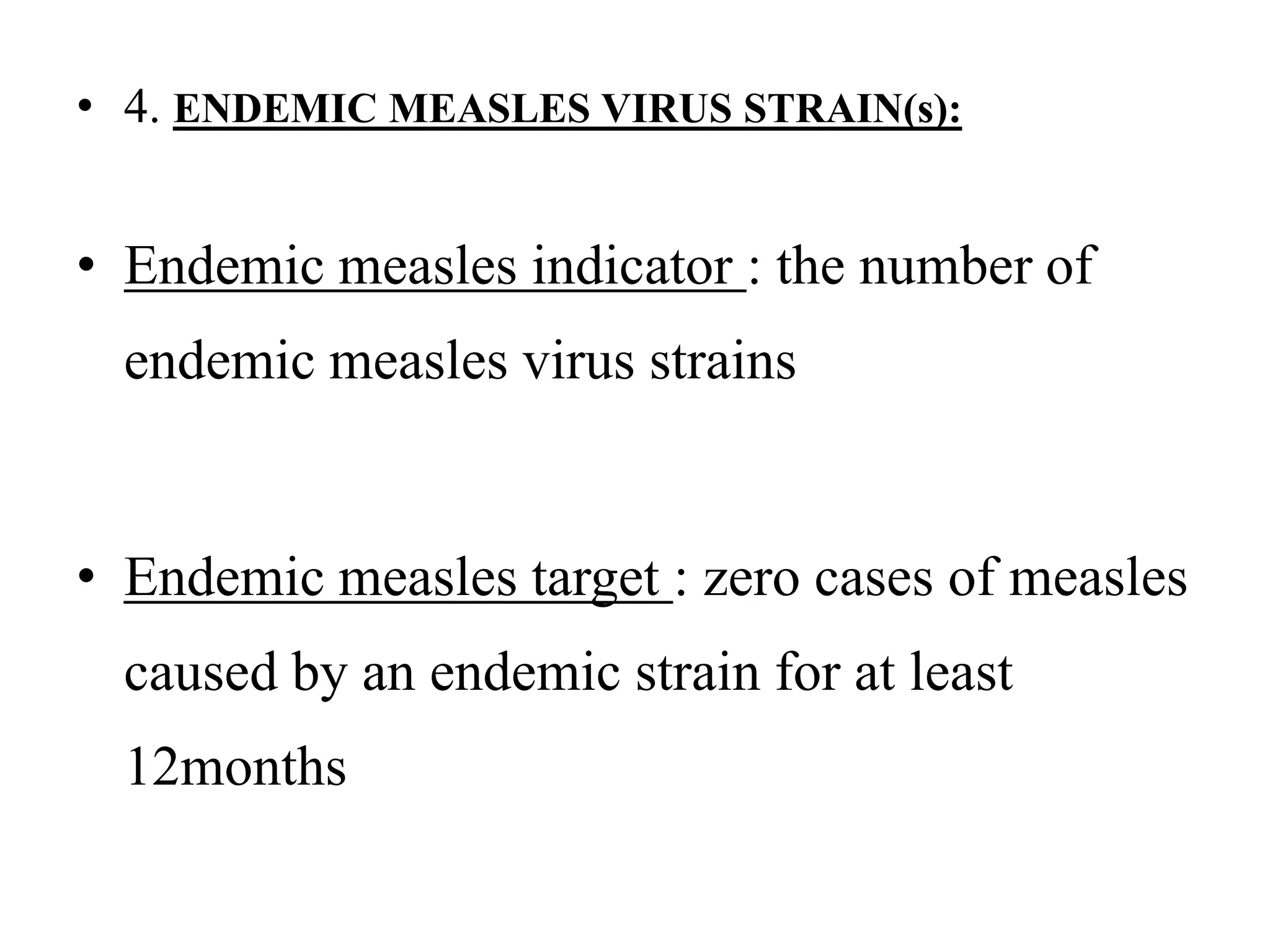Measles Elimination In Canada: Could We Lose Our Status This Fall?

Table of Contents
Declining Vaccination Rates: A Major Threat to Measles Elimination in Canada
Even small decreases in vaccination coverage can have a dramatic impact on a population's susceptibility to measles. Achieving and maintaining herd immunity, a critical protection against outbreaks, requires high vaccination rates. The lower the vaccination rate, the higher the risk of a resurgence of measles.
Understanding the Impact of Lower Vaccination Coverage:
- Declining Vaccination Rates: Several Canadian provinces have reported a concerning decline in measles-mumps-rubella (MMR) vaccination rates in recent years. For instance, some regions have seen rates drop below the 95% threshold recommended by the World Health Organization (WHO) for herd immunity.
- Reasons for Vaccine Hesitancy: This decline is partly attributed to vaccine hesitancy fueled by misinformation spread through social media and distrust in health authorities. Other factors include parental concerns about vaccine safety (often unfounded) and accessibility issues.
- Herd Immunity Threshold: The 95% threshold is not arbitrary; it's crucial for protecting those who cannot be vaccinated due to medical reasons. Falling below this level significantly increases the risk of outbreaks, particularly in densely populated areas. Measles is highly contagious, and even a small number of unvaccinated individuals can spark a large-scale outbreak.
Addressing Vaccine Hesitancy Through Public Health Campaigns:
Effective communication is key to countering vaccine hesitancy. Public health campaigns must leverage evidence-based information, address parental anxieties directly, and utilize diverse communication channels.
- Successful Public Health Initiatives: Examples of effective campaigns include utilizing social media influencers to promote vaccination, collaborating with community leaders to build trust, and partnering with healthcare providers to offer personalized advice.
- The Role of Healthcare Providers: Doctors, nurses, and other healthcare professionals play a crucial role in building trust and providing reliable information about vaccine safety and efficacy.
- Accessible Information: Providing clear, concise, and culturally sensitive information in multiple languages is vital for reaching all segments of the Canadian population.
The Global Threat: Increased Measles Cases Worldwide and the Risk to Canada
The resurgence of measles globally poses a significant threat to Canada's elimination status. Increased international travel facilitates the importation of measles cases, potentially triggering outbreaks even in highly vaccinated populations.
International Travel and the Spread of Measles:
- Global Measles Outbreaks: In recent years, several countries have experienced significant measles outbreaks, primarily due to declining vaccination coverage. These outbreaks pose a direct threat to Canada through international travel.
- High-Risk Countries: Specific countries with high measles incidence rates represent a heightened risk for importing cases into Canada. Public health authorities constantly monitor these areas and implement necessary preventative measures.
- Border Control and Surveillance: Canada's border control and public health surveillance systems play a vital role in detecting and managing imported measles cases, including enhanced screening at points of entry.
The Importance of Robust Surveillance and Rapid Response Systems:
Effective surveillance and rapid response are critical for containing any measles outbreaks. Early detection, swift isolation, and contact tracing are paramount.
- Role of Public Health Officials: Public health officials, healthcare providers, and laboratories collaborate closely to detect, investigate, and respond to potential outbreaks.
- Contact Tracing and Isolation: Rapid identification of infected individuals and their close contacts, followed by prompt isolation and vaccination of contacts, prevents the further spread of the virus.
- Challenges in a Diverse Country: The geographic diversity of Canada presents challenges for rapid response. Effective communication and coordination between different health regions are essential.
Protecting Vulnerable Populations: Ensuring Equitable Access to Measles Vaccination
Ensuring equitable access to measles vaccination for all Canadians, regardless of their background or location, is crucial. Certain populations face disproportionate barriers to accessing healthcare services.
Reaching Underserved Communities:
- Challenges in Reaching Vulnerable Groups: Geographic isolation, socioeconomic factors, and cultural beliefs can hinder access to vaccination for marginalized and remote communities.
- Culturally Sensitive Strategies: Public health initiatives must employ culturally sensitive communication strategies and community-based vaccination programs to reach these groups effectively.
- Addressing Socioeconomic Barriers: Programs need to address socioeconomic barriers, including cost and accessibility issues, to ensure equitable access to vaccination.
Strengthening Immunization Programs for Infants and Young Children:
Infants and young children are particularly vulnerable to measles complications. Adherence to the recommended vaccination schedule is critical.
- Recommended Vaccination Schedule: Following the recommended vaccination schedule ensures optimal protection against measles and other preventable diseases.
- Parental Compliance: Parental compliance with the recommended vaccination schedule is vital for achieving and maintaining herd immunity. Educating parents about the importance and safety of vaccination is essential.
- Long-Term Consequences of Measles: Measles can lead to serious complications, including pneumonia, encephalitis, and even death. Preventing outbreaks protects children from these devastating consequences.
Conclusion
Canada's measles elimination status is under threat due to declining vaccination rates, global outbreaks, and challenges in reaching vulnerable populations. Maintaining high vaccination rates, strengthening surveillance systems, and ensuring equitable access to vaccination are crucial for preventing a resurgence of measles. We must address vaccine hesitancy through evidence-based communication and culturally sensitive strategies. This requires a collective effort from public health authorities, healthcare providers, community leaders, and every Canadian. Get vaccinated, encourage your family and friends to do the same, and advocate for strong public health policies that support Measles Elimination Canada. Let's work together to protect this hard-won public health victory and use hashtags like #MeaslesEliminationCanada to raise awareness and promote vaccination.

Featured Posts
-
 Contenders Criticism Of Jon Jones Ufc Heavyweight Reign
May 30, 2025
Contenders Criticism Of Jon Jones Ufc Heavyweight Reign
May 30, 2025 -
 Sparks Mad A Stereoboard Album Review And Analysis
May 30, 2025
Sparks Mad A Stereoboard Album Review And Analysis
May 30, 2025 -
 Metz 2026 Jacobelli Se Lance T Il Dans La Course Municipale
May 30, 2025
Metz 2026 Jacobelli Se Lance T Il Dans La Course Municipale
May 30, 2025 -
 2025 Comeback Hybe Addresses Btss Extended Hiatus And Future Plans
May 30, 2025
2025 Comeback Hybe Addresses Btss Extended Hiatus And Future Plans
May 30, 2025 -
 Alcaraz Vs Musetti A Monte Carlo Masters Showdown In 2025
May 30, 2025
Alcaraz Vs Musetti A Monte Carlo Masters Showdown In 2025
May 30, 2025
